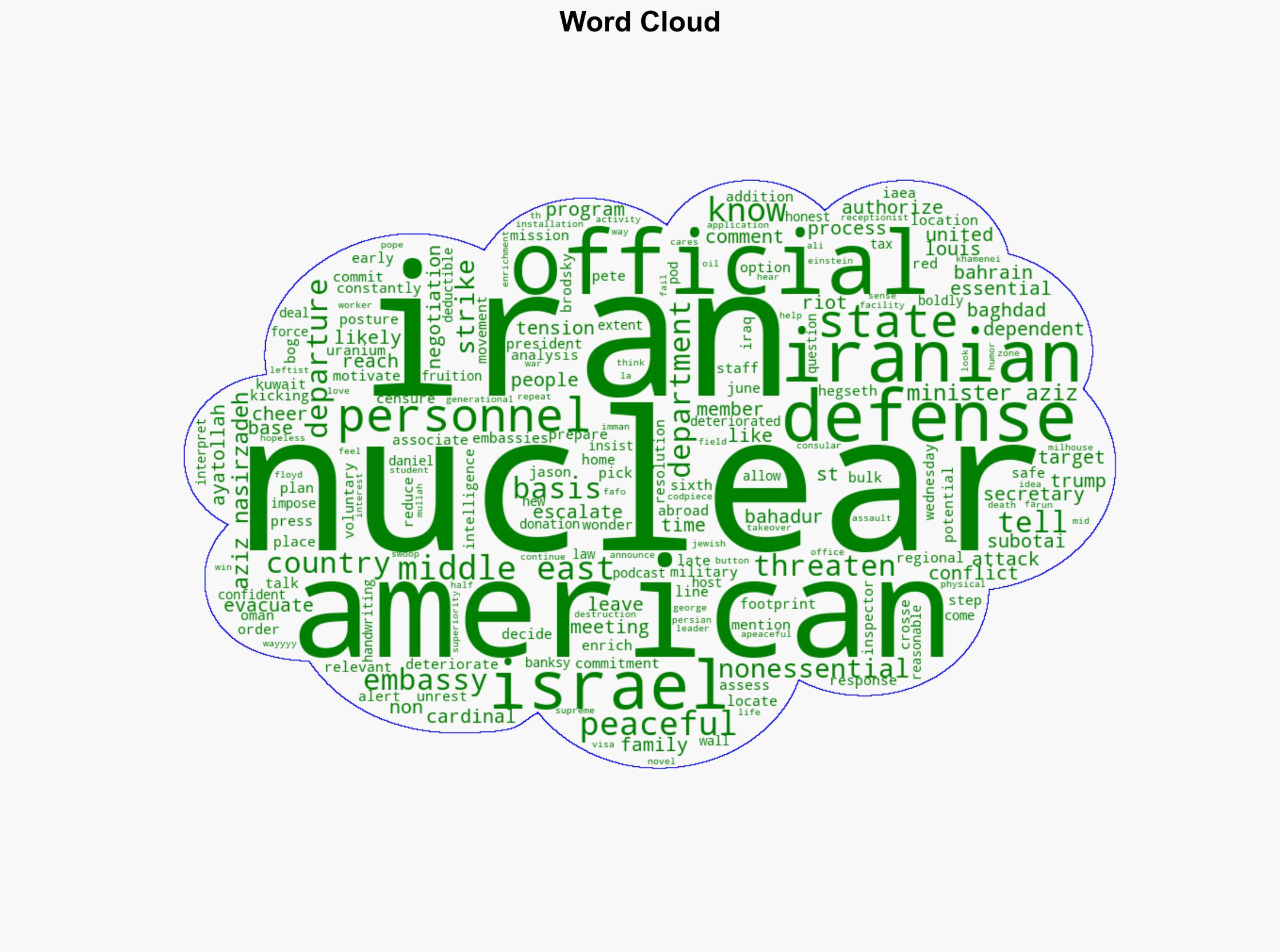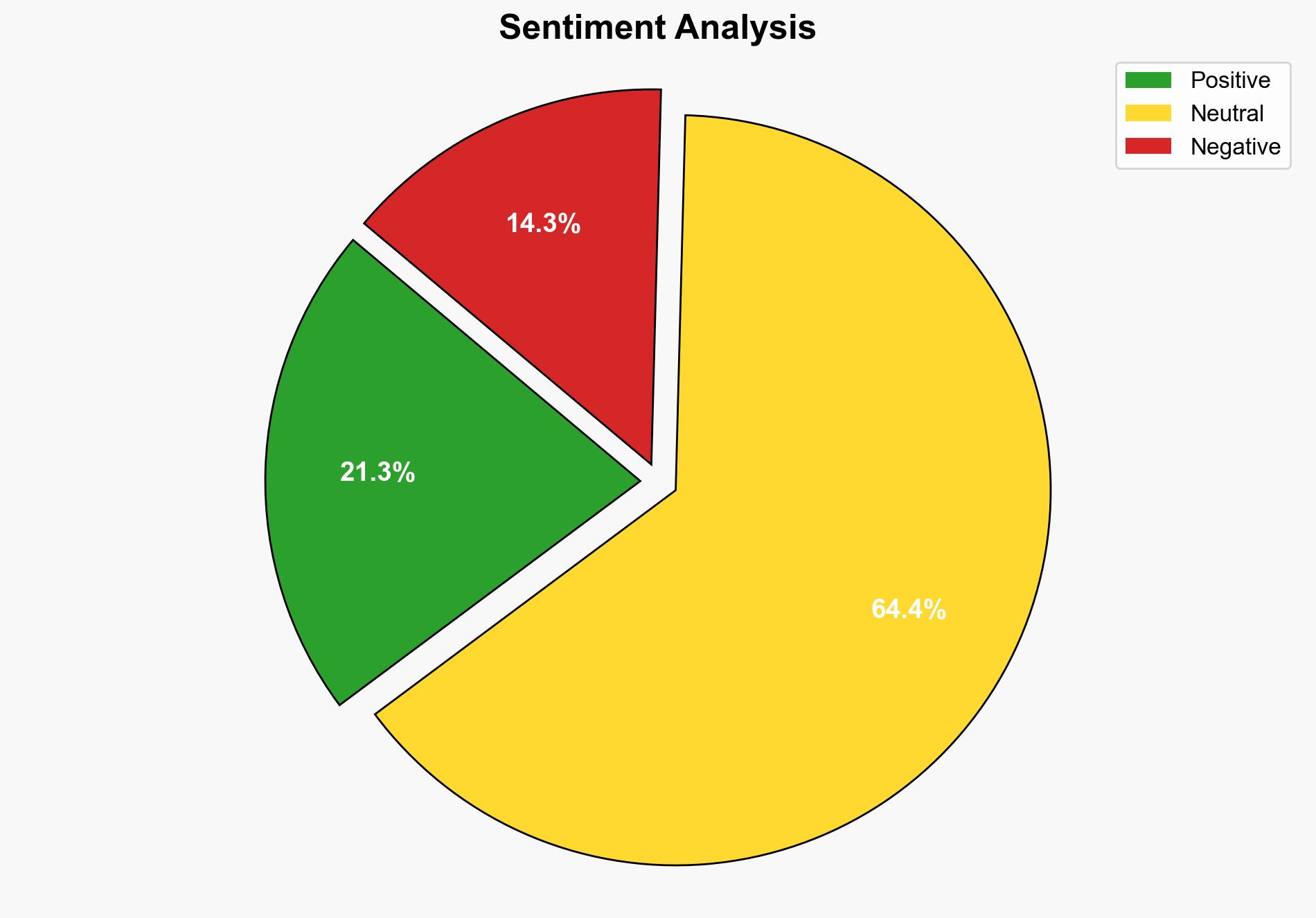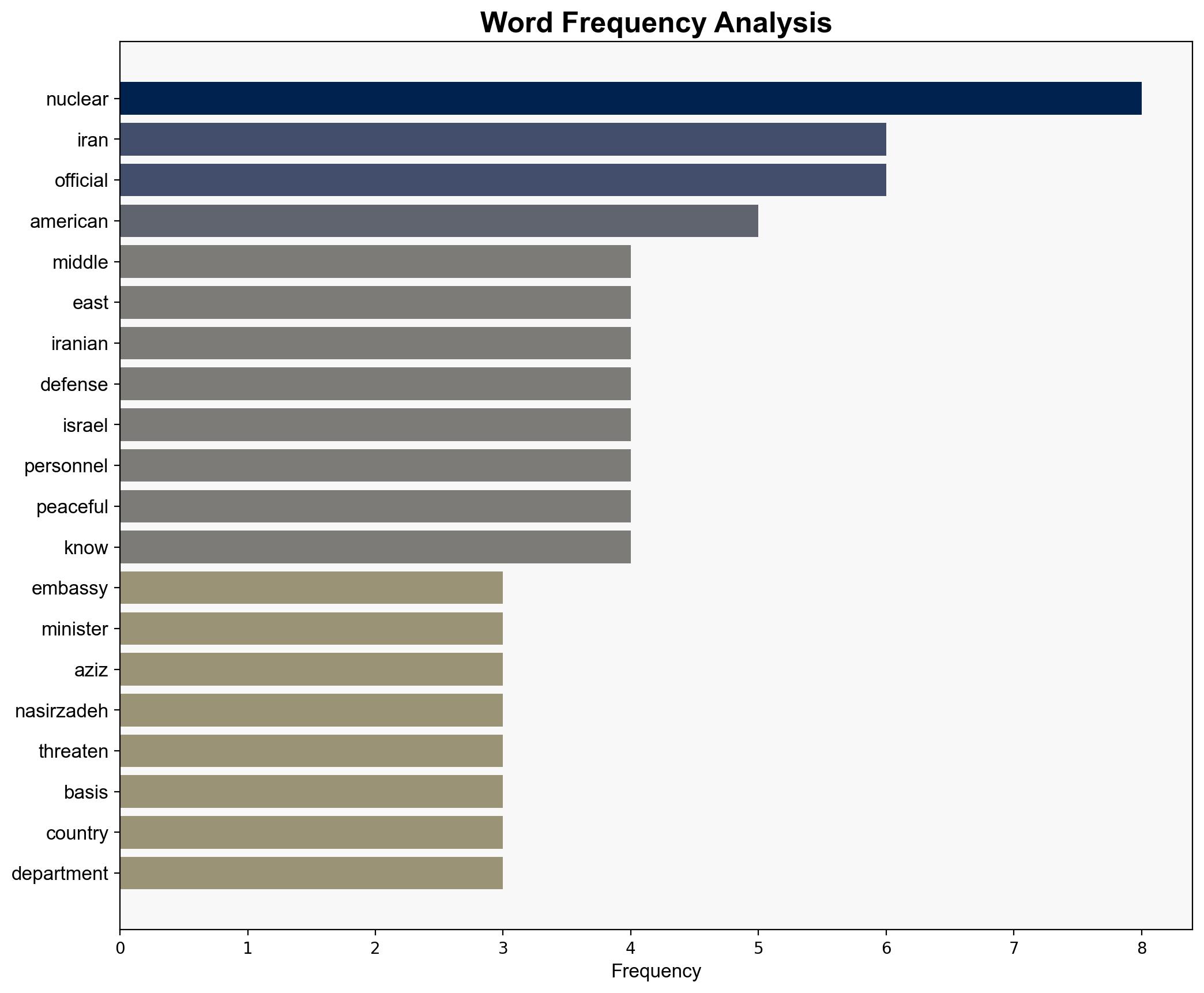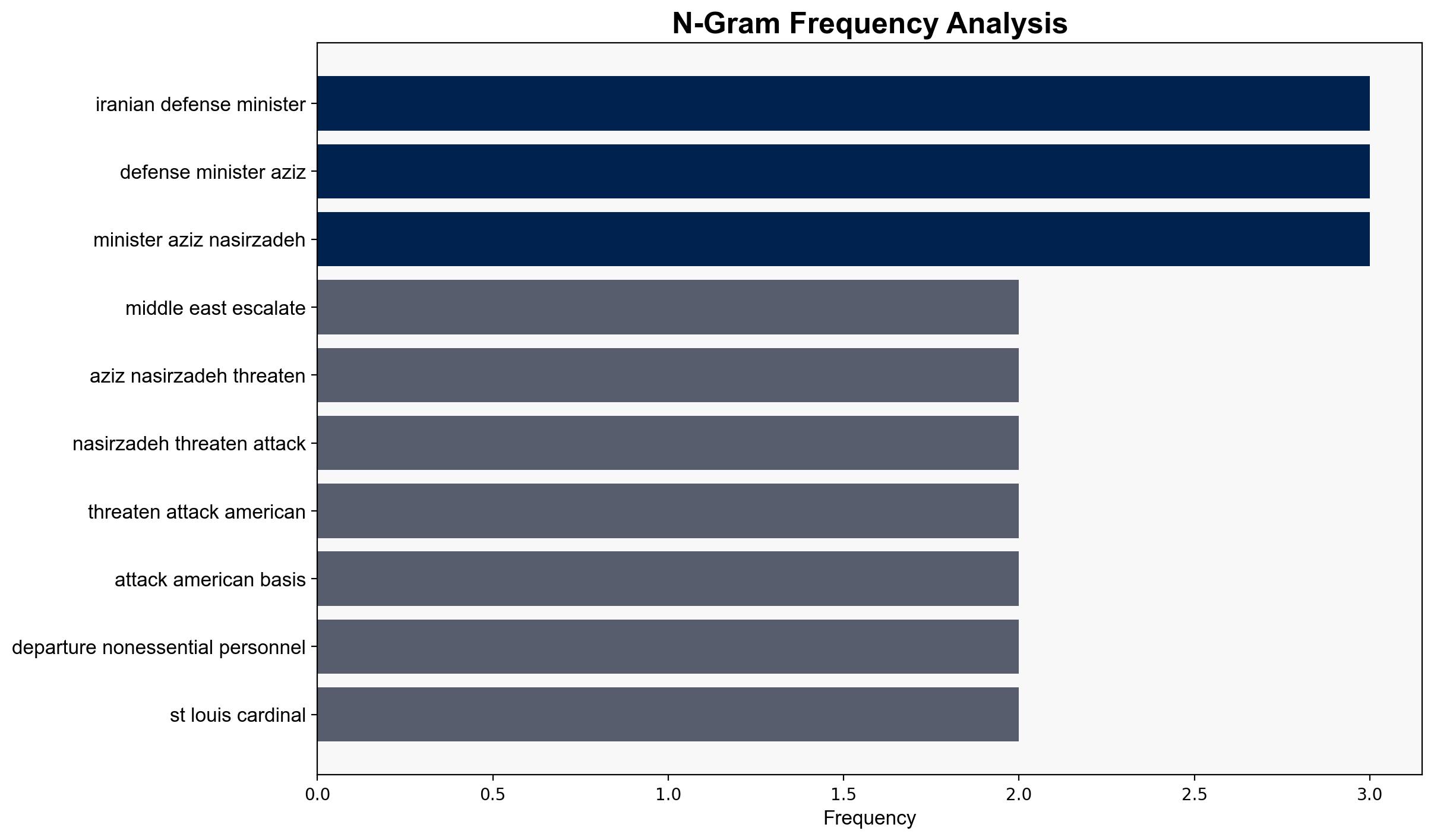US Embassies Evacuating Non-Essential Staff in Middle East Over Escalating Iran Tensions – Legalinsurrection.com
Published on: 2025-06-11
Intelligence Report: US Embassies Evacuating Non-Essential Staff in Middle East Over Escalating Iran Tensions – Legalinsurrection.com
1. BLUF (Bottom Line Up Front)
The United States has initiated the evacuation of non-essential embassy staff from the Middle East due to escalating tensions with Iran. This decision follows threats from Iranian Defense Minister Aziz Nasirzadeh and deteriorating nuclear negotiations. The strategic recommendation is to enhance regional security measures and diplomatic engagement to prevent further escalation.
2. Detailed Analysis
The following structured analytic techniques have been applied to ensure methodological consistency:
Causal Layered Analysis (CLA)
Surface events include the evacuation of embassy staff and threats from Iran. Systemic structures involve the geopolitical tensions between the US and Iran, influenced by nuclear negotiations. Worldviews reflect the US commitment to protecting its citizens and assets abroad. Myths pertain to the perception of Iran’s nuclear ambitions.
Cross-Impact Simulation
The evacuation may influence regional stability, potentially affecting neighboring countries like Iraq, Bahrain, and Kuwait. Economic dependencies, such as oil markets, could experience volatility due to perceived risks.
Scenario Generation
Potential scenarios include a diplomatic resolution leading to de-escalation, continued tensions resulting in military confrontations, or a stalemate with ongoing threats and sanctions.
3. Implications and Strategic Risks
The evacuation highlights vulnerabilities in regional security and the potential for military conflict. Cyber threats may increase as tensions rise. Economic impacts could include disruptions in oil supply chains. Cross-domain risks involve potential retaliatory actions by Iran affecting US interests globally.
4. Recommendations and Outlook
- Enhance diplomatic efforts to resume nuclear negotiations and reduce tensions.
- Strengthen security protocols at US installations in the Middle East.
- Monitor cyber threats and prepare for potential retaliatory actions.
- Scenario-based projections: Best case – diplomatic resolution; Worst case – military confrontation; Most likely – ongoing tensions with intermittent escalations.
5. Key Individuals and Entities
Aziz Nasirzadeh, Ayatollah Ali Khamenei, Pete Hegseth, Jason Brodsky
6. Thematic Tags
national security threats, cybersecurity, counter-terrorism, regional focus





